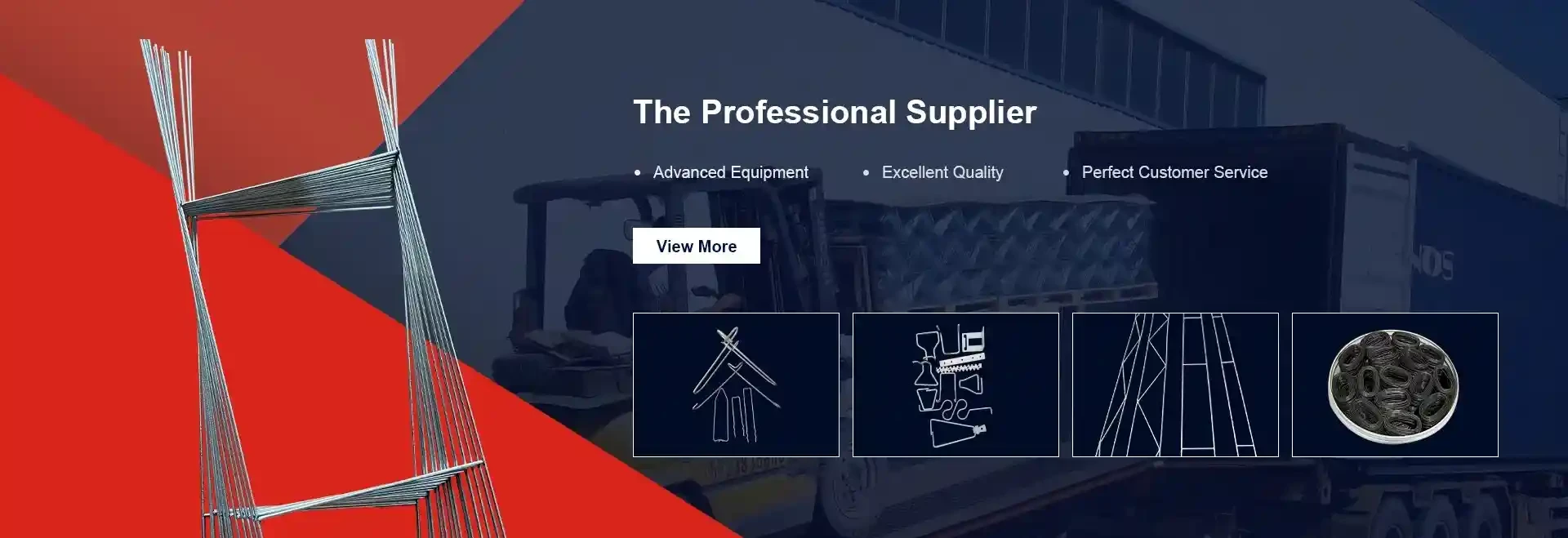
- Mobile Phone
- +8613931874955
- sales@cntcmetal.com
Enhancing Mechanical Performance with Advanced Coil Spring Designs and Applications
The Performance of Coil Springs Enhancing Vehicle Dynamics and Comfort
Coil springs are pivotal components in the suspension system of vehicles, playing a crucial role in maintaining ride comfort and handling performance. They are designed to absorb shocks and support the weight of the vehicle while allowing for controlled suspension movement. As technology advances and automotive engineering evolves, understanding the performance characteristics of coil springs has become essential for both manufacturers and enthusiasts alike.
Design and Functionality of Coil Springs
Coil springs are typically made from high-carbon steel or other specialized alloys that can withstand the stresses and strains of varying road conditions. Their design allows them to compress and extend to accommodate changes in weight and terrain, ensuring that the vehicle maintains contact with the road. The fundamental function of a coil spring is to store potential energy and release it when needed, aiding in the vehicle’s overall stability and comfort.
Different factors influence the performance of coil springs, including wire diameter, coil diameter, and the total number of coils. A thicker wire typically increases the spring’s stiffness, which can enhance handling but may compromise ride comfort. Conversely, a wrap of more coils or a thinner wire can improve ride quality, absorbing impacts from the road, but may reduce the overall vehicle response in high-speed maneuvers.
Performance Enhancements through Material Technology
Innovations in material science have significantly enhanced the performance of coil springs. Manufacturers now utilize advanced materials like composite springs which are lighter yet provide equivalent strength and durability compared to traditional metal springs. These modern materials can also offer better resistance to fatigue, prolonging the lifespan of the suspension system.
The performance of coil springs is also influenced by their treatment and finish. Heat treatment can improve the hardness and strength of the spring material, while surface treatments such as galvanization can enhance corrosion resistance. These enhancements are crucial in locations where exposure to the elements can lead to premature failure of conventional springs.
performance coil springs

Application in Various Vehicle Types
Coil springs are used in various types of vehicles, from regular passenger cars to high-performance sports cars and off-road vehicles. Each application requires different spring characteristics tailored to specific driving needs. For instance, sports cars typically use stiffer springs to minimize body roll during aggressive cornering, whereas off-road vehicles may utilize softer, longer coil springs to improve articulation and comfort on rugged terrain.
In the performance automotive sector, aftermarket coil springs are a popular modification. Enthusiasts often replace factory springs with performance-oriented alternatives that offer lower ride heights and enhanced handling characteristics. Adjustable coilovers have also gained popularity, allowing drivers to fine-tune the ride height and stiffness to suit their driving style and preferences.
Impact on Safety and Handling
The performance of coil springs directly impacts a vehicle's safety and handling dynamics. Properly functioning springs ensure that the tires maintain consistent contact with the road surface, which is essential for effective braking and steering. If coil springs are worn or damaged, they can lead to issues such as poor handling, increased stopping distances, and uneven tire wear, ultimately compromising vehicle safety.
Moreover, the right choice of coil springs can significantly enhance ride quality. Drivers who invest in high-performance springs often report improvements in comfort and handling, leading to a more enjoyable driving experience. This balance between comfort and performance is critical, especially for vehicles used in diverse driving conditions.
Conclusion
In conclusion, the performance of coil springs plays a vital role in the overall dynamics of a vehicle. From design considerations to material advancements, understanding the intricacies of coil springs enables manufacturers and enthusiasts to enhance vehicle performance and comfort. Whether for a daily driver or a high-performance sports car, the right coil springs can make all the difference in achieving the perfect balance between ride quality and handling capabilities. As the automotive industry continues to innovate, coil springs will remain a fundamental aspect of vehicle suspension systems, crucial for promoting safety, comfort, and performance on the road.
share:
-
Your Source for Concrete Wall Ties and Masonry AccessoriesNewsJul.10,2025
-
Unlocking the Power of Iron Wire for Every ProjectNewsJul.10,2025
-
Explore Advanced Chain Wire and Stainless Steel Mesh FencingNewsJul.10,2025
-
Discover the Benefits of Annealed Wire ProductsNewsJul.10,2025
-
Discover China Stainless Steel Wire Mesh SolutionsNewsJul.10,2025
-
Build with Confidence Using High-Performance Masonry AccessoriesNewsJul.10,2025
-
Why Sacrificial Formwork Is Redefining Underground ConstructionNewsJun.06,2025



















